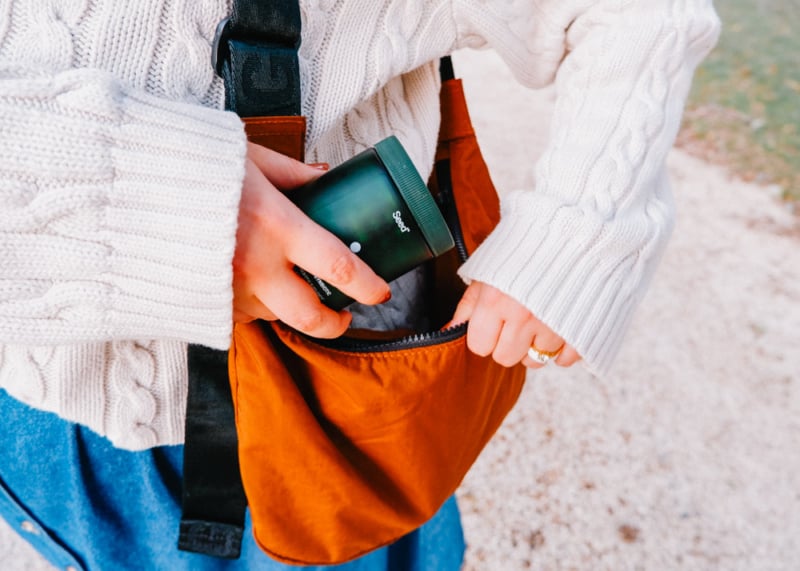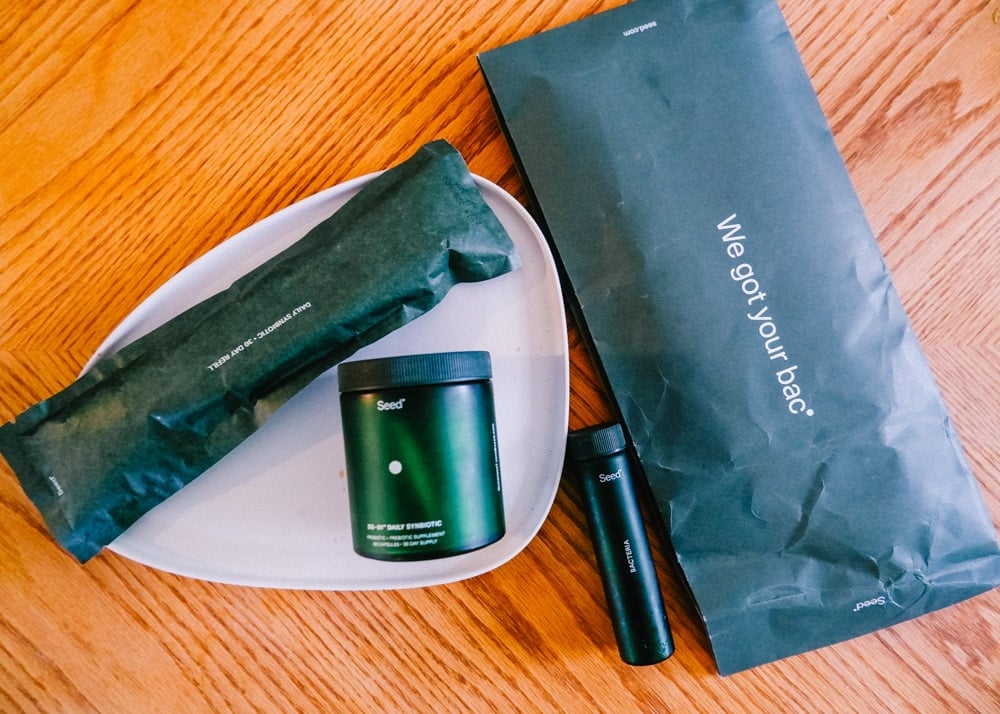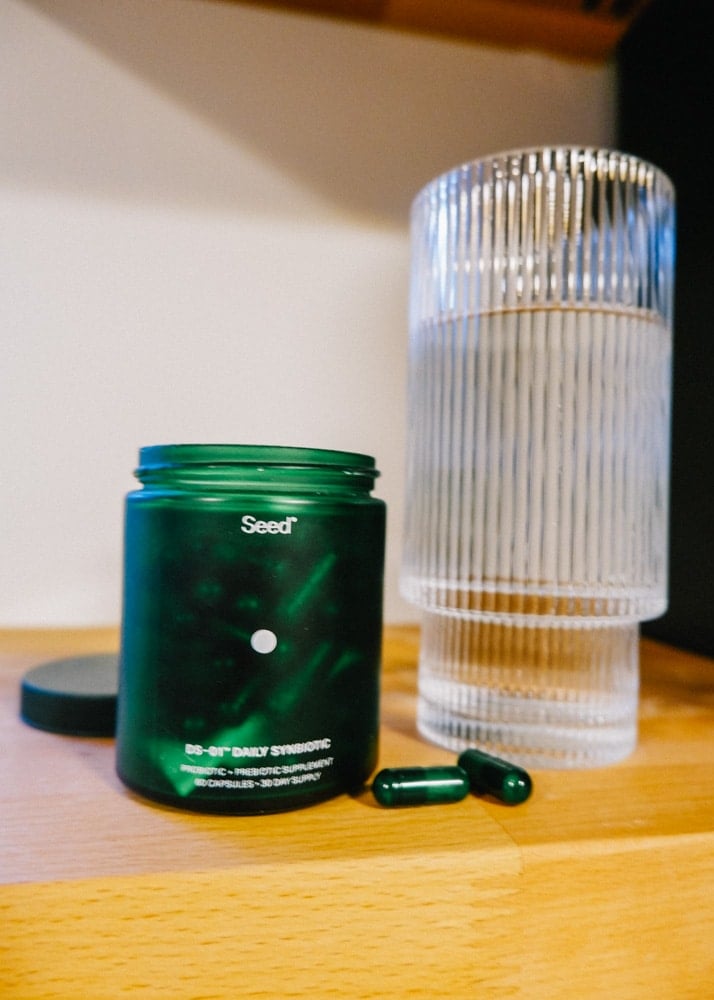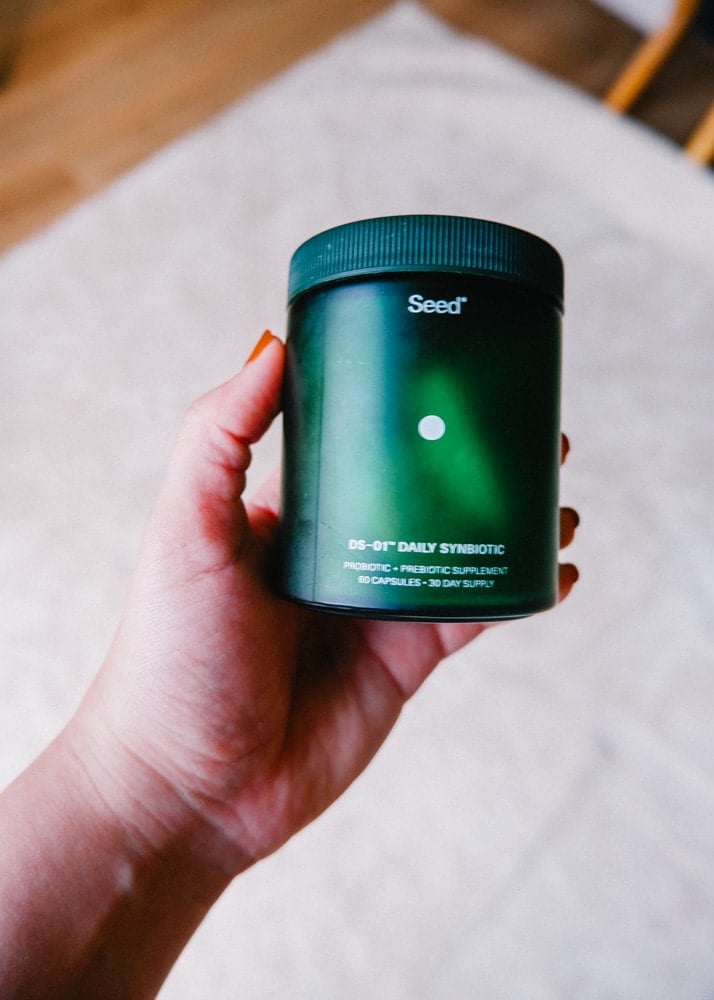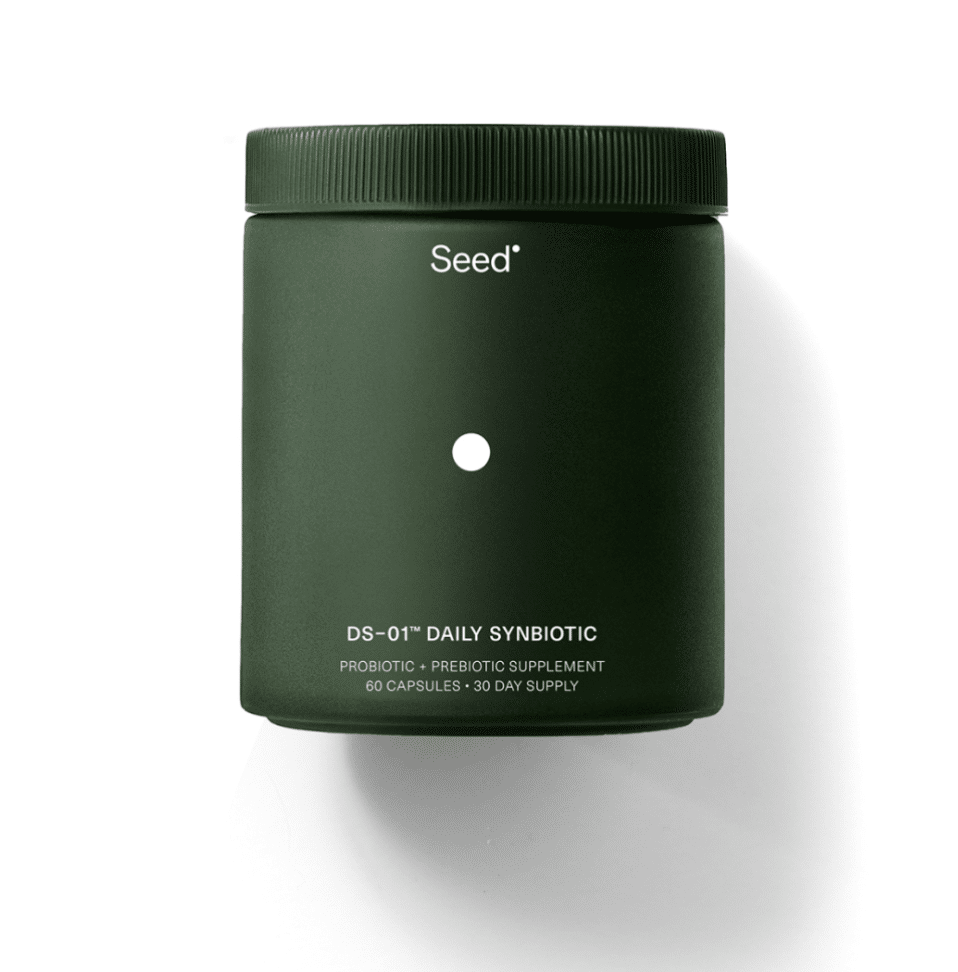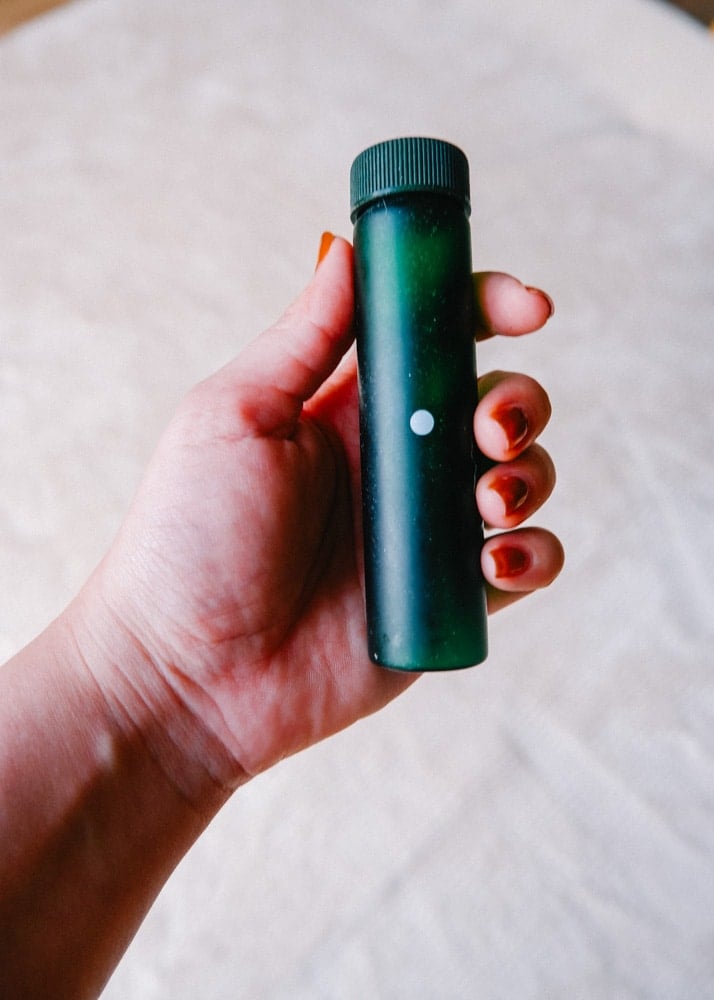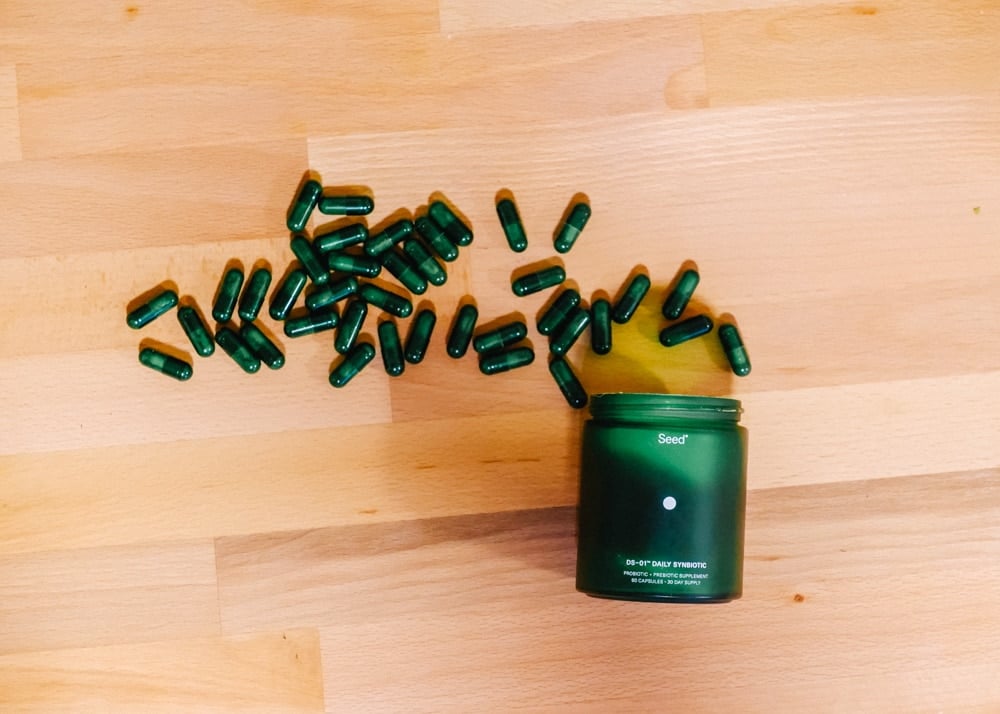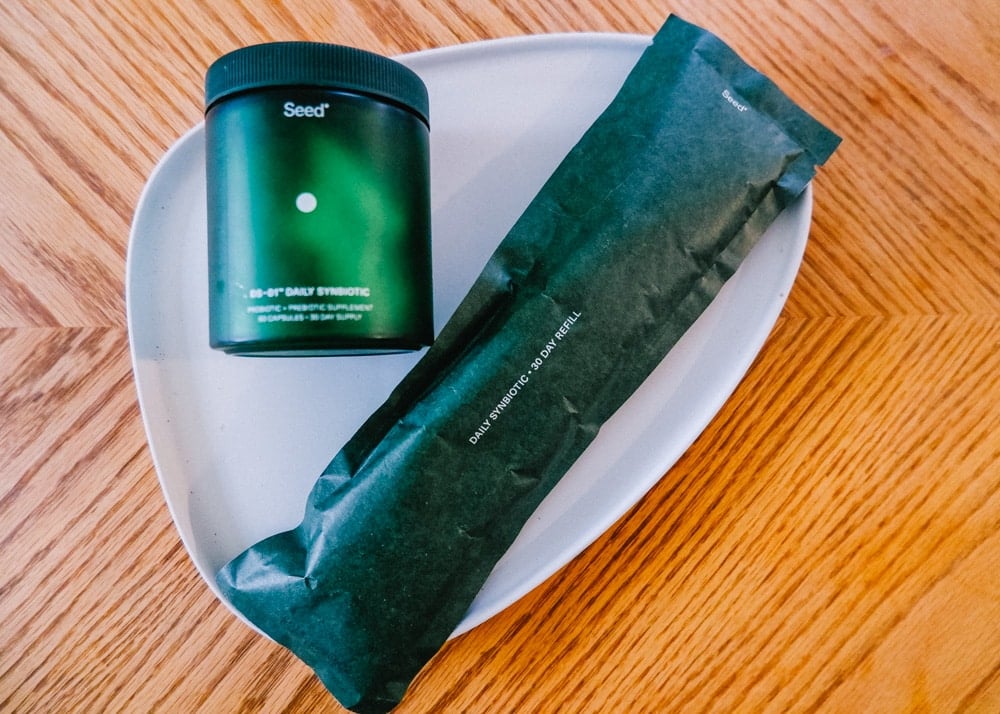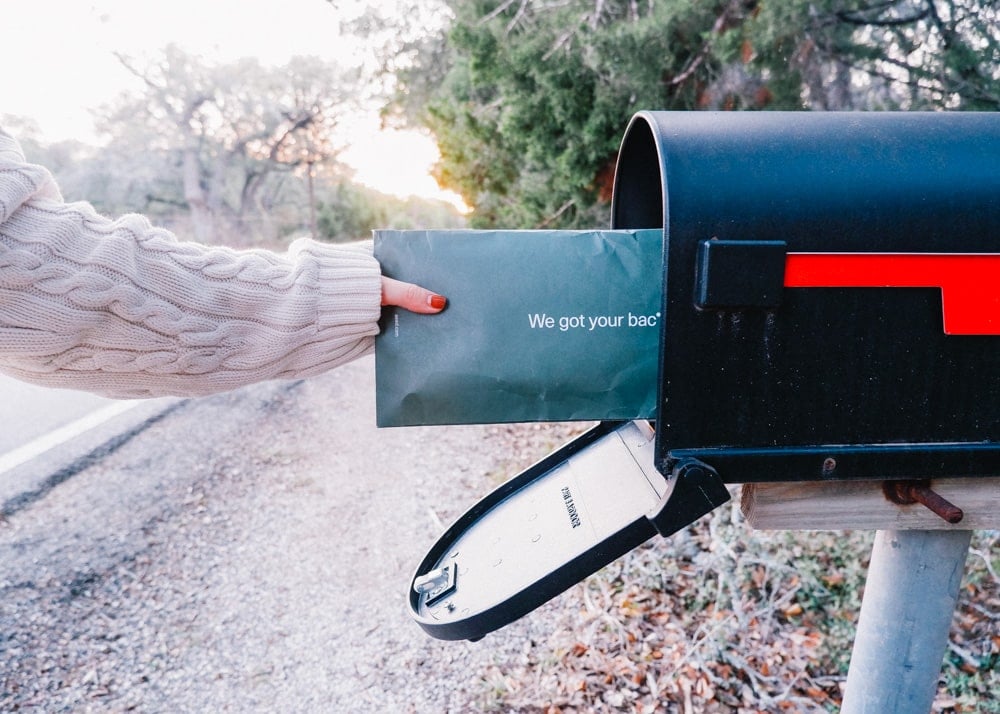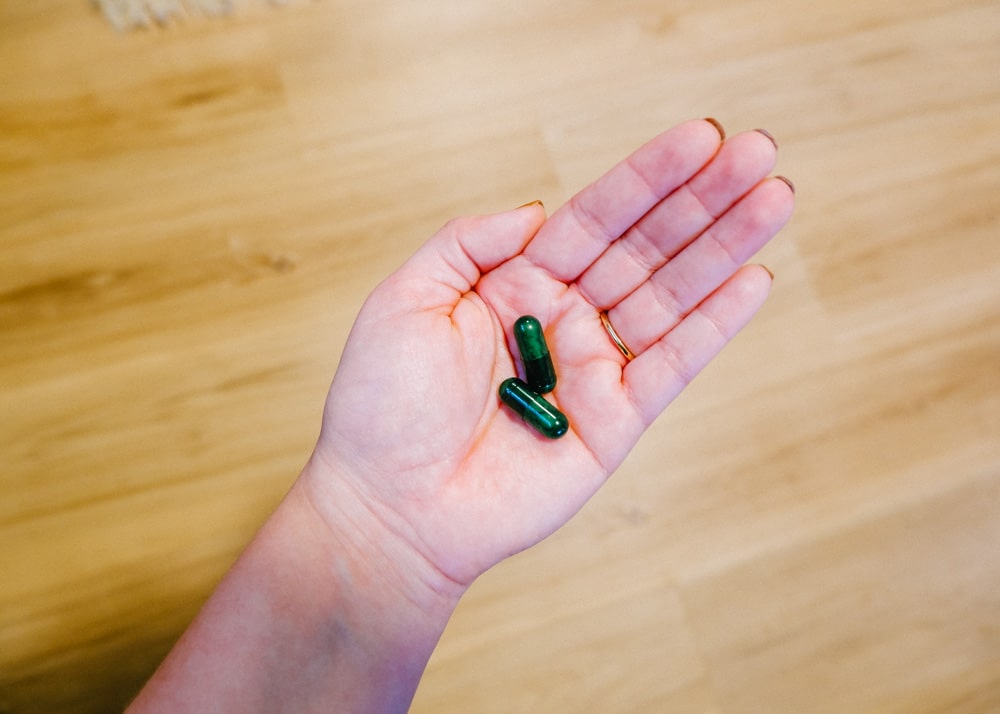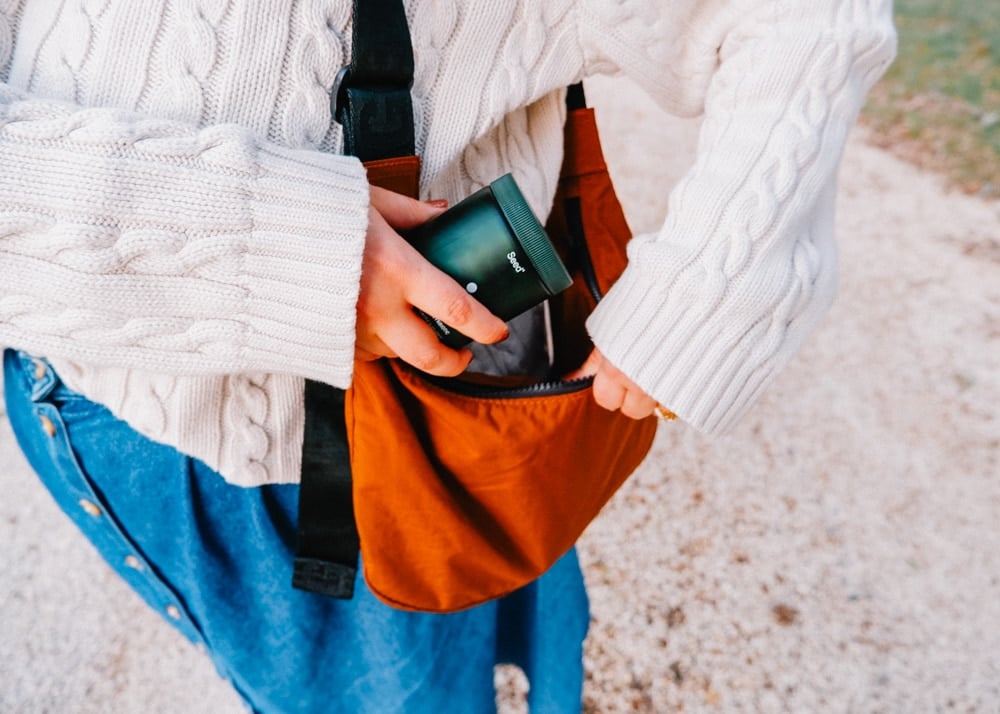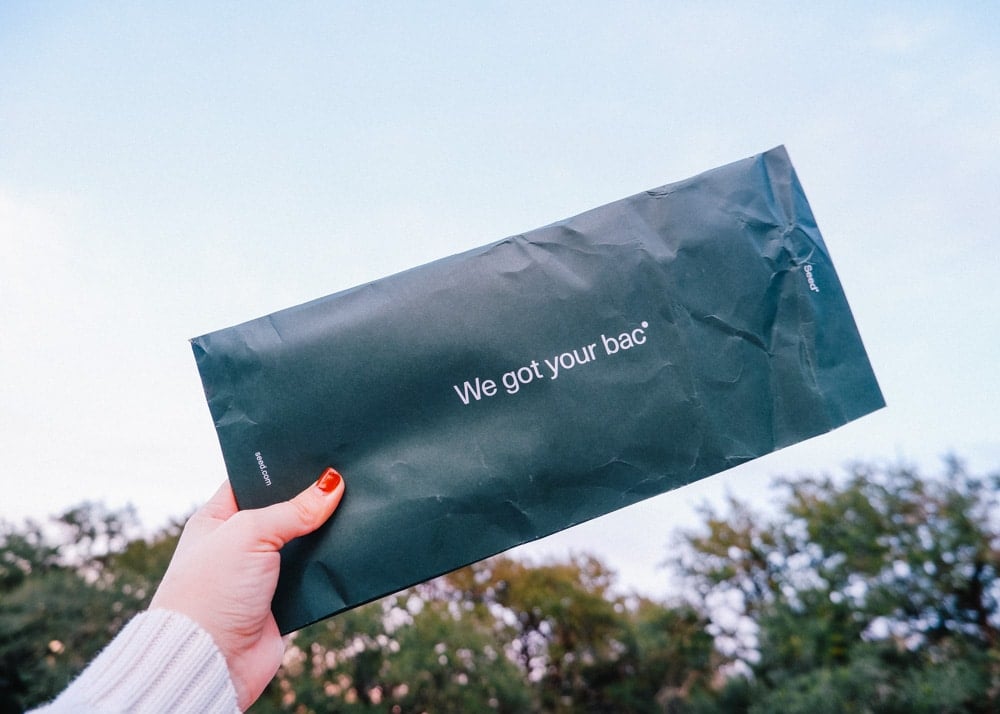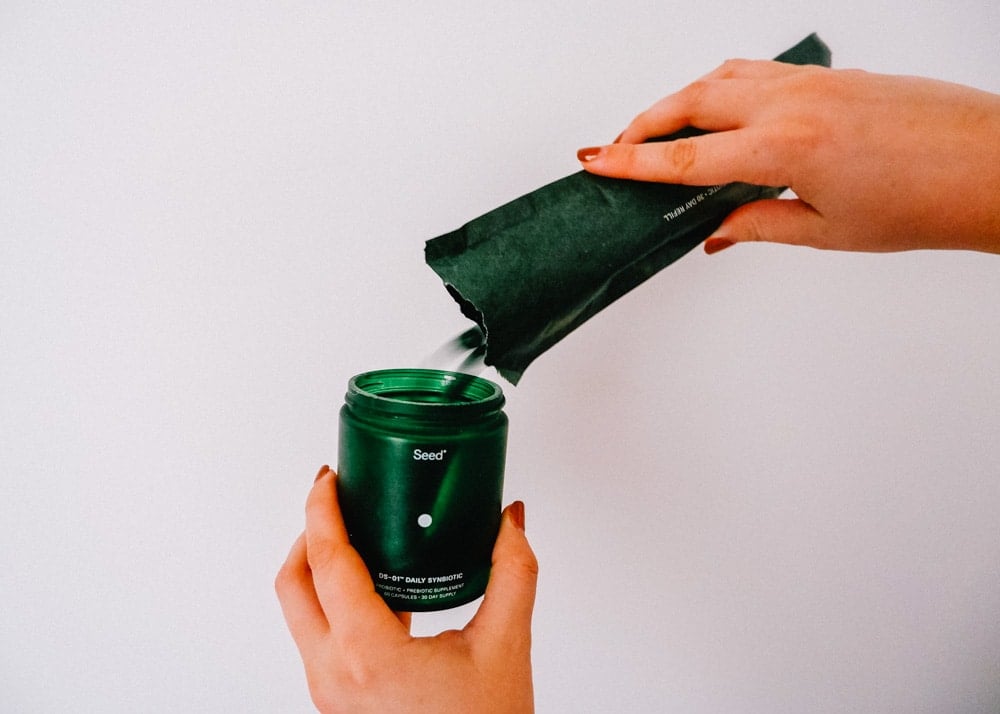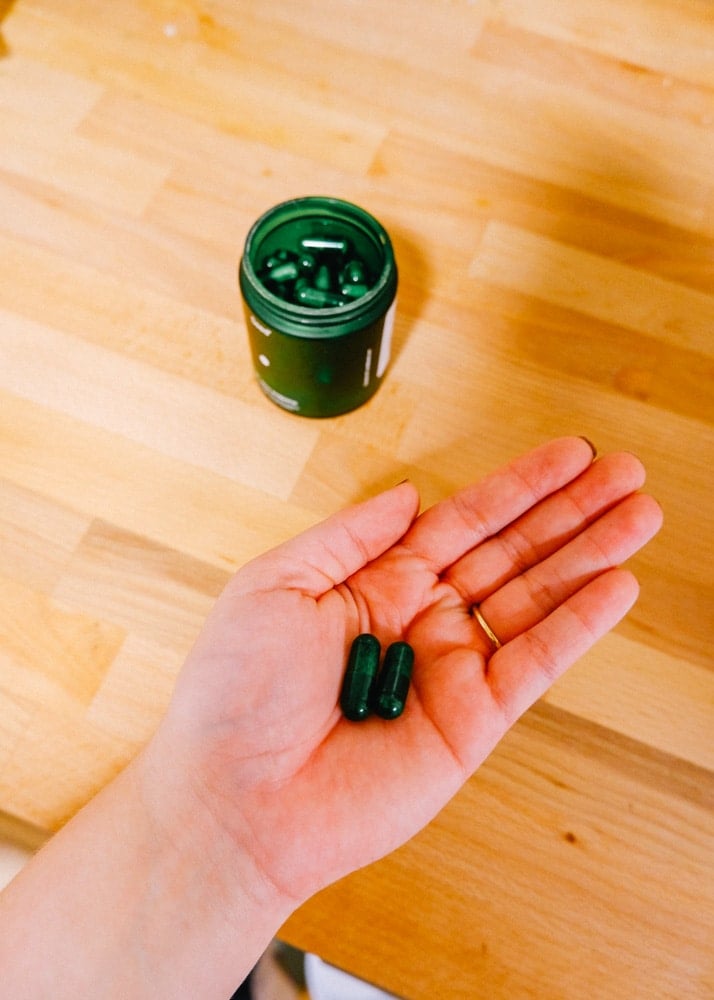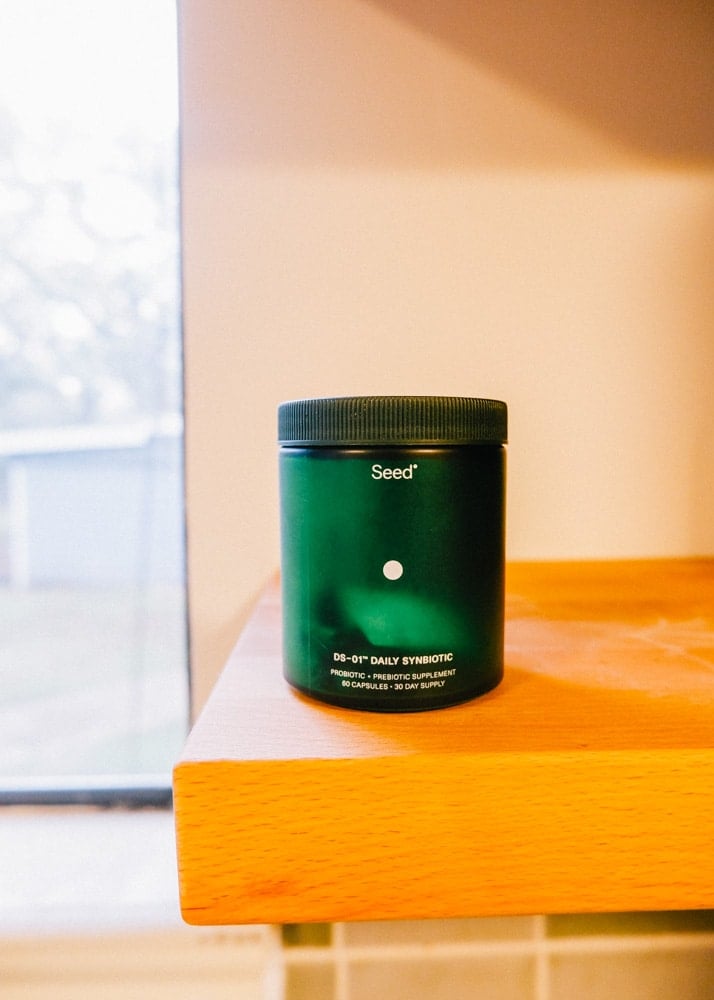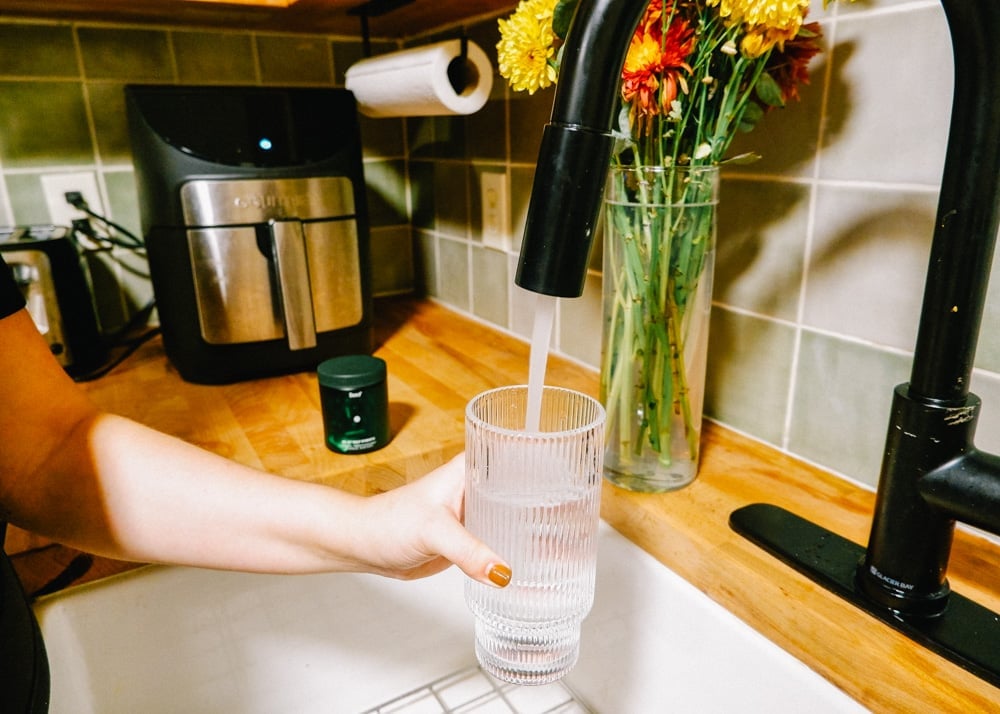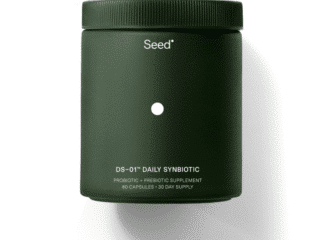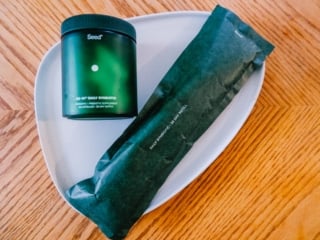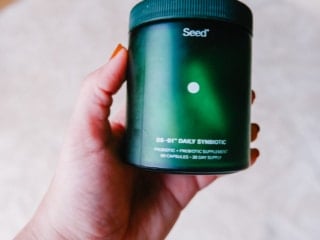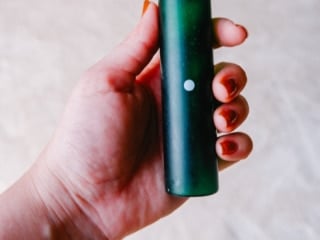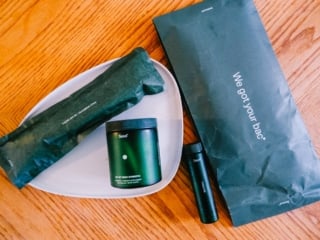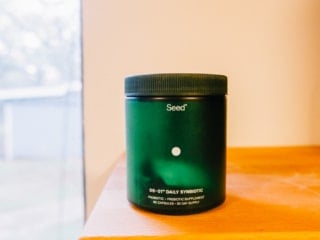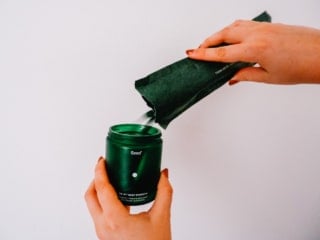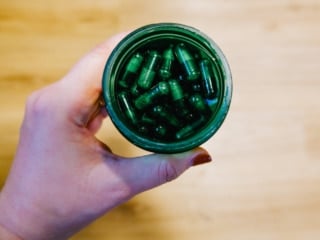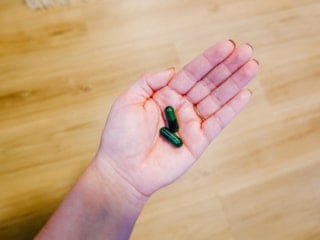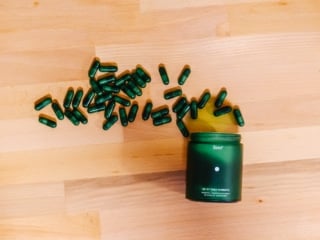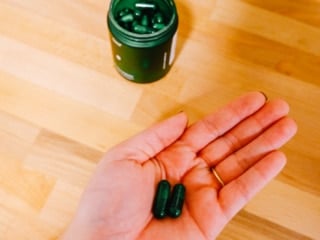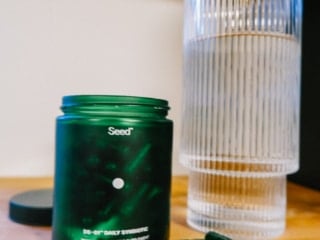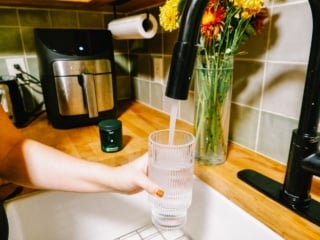Is it just me or did everyone start having tummy issues in the last few years? Or as the kids say, hot girls have tummy issues. Maybe as I get closer to 30, my frame of reference has changed, or my body is just more reactive to what I put it than it used to be.
But in my last few years, I’ve not developed tummy issues exactly, more so digestion issues in the form of heartburn and acid reflux which has even led to bursts of shortness of breath that are kind of scary! When I first experienced these symptoms, I had no idea what was happening, and thought maybe something was seriously wrong with me.
Luckily, after several Google searches, I had a name for what I was feeling, and I’ve done a lot to alleviate my symptoms such as changes to my diet and incorporating movement after eating. All of that on top of my enthusiasm for wellness and lots of social media ads, I discovered Seed. Now let’s get into this Seed review!
What is Seed Probiotics?
Seed is actually just the “brand” name that develops the DS-O1 Daily Synbiotic. It’s actually really hard for me to explain to everyone that I take Seed because it’s not just a probiotic. “Syn” is the Greek prefix for with or together, and the DS-01 Daily Synbiotic is actually a combination of two things: a probiotic and prebiotic.
In fact, if you look closely at the Seed Daily Synbiotic capsule, you’ll see a tiny capsule inside which houses the prebiotic. The outer capsule is the probiotic blend.
Also referred to as 2-in-1 capsule technology! Seed’s clinically formulated probiotic and prebiotic capsule was developed to help “gastrointestinal function, skin health, heart heat, gut immune function, gut barrier integrity and micronutrient synthesis.”
All of that in a couple of daily capsules? It might sound like a lot, but I think it’s because ALL those things (and more!) are connected to your gut health.
Seed’s approach to probiotics is based in science, and approaches development in four ways: probiotic strains, biofermentation, validation, their system developed to model human digestion and the gut (Simulator of the Human Intestinal Microbial Ecosystem, aka SHIME), lots of testing and clinical trials.
Seed Probiotics ingrediants also have tons of transparency to ensure you are putting good things into your body.
The closest I get to being a scientist is watching The Big Bang Theory, and my utmost respect for women in STEM so you can read more on the science of Seed for yourself here.
Another main differentiator of Seed is it doesn’t need to be refrigerated. A lot of the best probiotics do, and this is a huge deal for me because out of sight, out of mind is a real thing. I would never take it if it wasn’t easy to grab on my nightstand first thing in the morning.
As you might have heard via TikTok, Instagram Reels or even podcasts, gut health is instrumental to your overall health (or so I’ve heard) so let’s dig into that next.
What’s The Deal With Gut Health Anyway? Is It Just A Marketing Ploy?
I won’t lie. I’m a total sucker for wellness trends. I love trying something new, and seeing if it’ll work for me. Some do, and some don’t which I think makes me slightly less biased.
There is something inside me that does think there’s a mystery around Americans with gut issues, and all the products we have compared to what feels like a lack of problems with our European friends. That plus the lore around the lack of digestion issues when Americans travel in Europe is all pretty suspicious.
All that to say, I do think gut health is a real thing. I’m convinced more and more as each year passes! Our digestive system is complex. All of our bodily functions rely on being well nourished so it makes sense that gut health is of the utmost importance.
I like the way Seed puts it: our bodies are home to TRILLIONS of microorganisms and bacteria that perform all kinds of critical functions (i.e. our microbiome) and our “modern living” with things like antibiotic overuse, alcohol, sugar, tobacco, disrupted sleep, city-living, stress, poor diet, and other environmental factors have impacted our health.
A digestive aid like Seed is just a little something to keep things in working order.
That’s my long way of saying, yes I think gut health is extremely important and not a marketing ploy. Here are some podcasts I like on the topics:
- How To Optimize Your Gut Microbiome To Heal Your Whole Body
- The Future of Gut Health
- Gut Health Secrets
- How to Enhance Your Gut Microbiome for Brain & Overall Health
- How to Build, Maintain & Repair Gut Health
Why I Take A Probiotic Supplement
Personally, I take a probiotic for a couple of reasons: 1) it came recommended by my doctor to help with my digestive issues; 2) the same reason I take all my other supplements… to supplement my diet.
It’s nearly impossible to get the “right” amount of probiotics and prebiotics your body, gut, microbiome needs with diet alone. Not to mention, I’m not a big fan of foods like yogurt, sauerkraut, and kimchi that are great for giving you that daily dose (helps with frequent bowel movements, too, which is TMI but hey!)
Signs And Symptoms That You Might Have Gut Issues
There’s a bunch of unexpected and honestly, common things that could signal gut issues. This isn’t a comprehensive list, and you should of course, always speak to your doctor if you’re feeling bad!
- Bloating
- Fatigue
- Food intolerances
- Gas
- Brain fog
- Acne
- Anxiety
- Heart health / cardiovascular health issues
- Depression
- Trouble sleeping
- Heartburn
- Sugar cravings
- Irregular bowel movements / irritable bowel syndrome
- And more!
There’s even some autoimmune diseases and other chronic diseases that can be linked back to your gut health. So yeah, it’s important! Again, I want to be clear, I’m not a doctor or anywhere near anything to consult on medical issues.
I’m just speaking to my personal experiences, and have worked with my own doctors along the way.
Seed Probiotic Review After 2 Years Of Use
So you might be thinking, you obviously love Seed if you’ve been taking it for two years, right? And you’re right so I broke this Seed review into three categories: cost, effectiveness and sustainability to go over the pros and cons of using Seed.
Cost of Seed
This is the main barrier to entry when it comes to seed. It’s not cheap, especially compared to other probiotics you can find on the market. If you’re like me, wellness/health is a primary bucket of your budget, it’s not a big deal, but for most, it’s a big investment to spend.
How Much Does Seed Synbiotic Cost?
Seed is purchased on a subscription basis. At the time of publishing this article, Seed (pre-tax) costs:
- $49.99 per month for a 30 day supply delivered every month
- $44.99 per month for a 90 day supply delivered every 3 months (billed $134.97 every 3 months)
- $42.49 per month for a 180 day supply delivered every 6 months (billed $254.94 every 6 months)
That’s a 10% and 15% savings respectively, but before jumping into a new subscription, I recommend starting with a monthly subscription. This way you can try it out before you commit to receiving so many.
That’s what I did! I’m currently on a 3-month subscription, but seeing as I’m now 2 years in, I think I should make the move to the 6-month subscription.
Note, there also sell a pediatric daily synbiotic for kids or folks who can’t swallow a prebiotic outer capsule pill.
How I Justify The Price
If you’re doing the math, you realize that no matter the savings, you are still spending more than $1 per day for probiotics. Here are few ways I justify that price:
- Technically, I’m saving by not taking two separate supplements, right? Girl math! The synbiotic is a two-for-one with a combination of a prebiotic and probiotic.
- There’s a lot of science behind Seed. I feel confident investing in a product with a bunch of doctors and researchers behind it. You can never be too careful with what you put in and on your body. Not only has Seed has been tested against a lot of big allergens like gluten, dairy, soy and nuts, but it also contains no preservatives or other unnecessary ingredients.
- Unlike all of my other supplements, I don’t feel guilty about the waste created from all the bottles I buy month after month. In your initial purchase, Seed provides a glass bottle plus a smaller glass travel bottle and refills after that are sent in compostable bags. So I’ve been refilling the same bottle since I started two years ago.
- Lastly, back to why I take Seed probiotics… There are SO many benefits. Your gut impacts not only your digestion, but every organ in your body. I consider it an investment in my overall health – physical and mental!
Effectiveness of Seed
That’s the big question, right? Does it actually work, or is it all just a bunch of hocus pocus? By taking Seed for two years, I have a good sense of its effectiveness.
When I first started taking it, there was no telling if it was Seed or any of the other diet changes, supplements and more that I was doing. I kind of noticed a difference almost immediately (within a day or so), but I wasn’t completely sure.
You know how sometimes you miss a day or two of taking something? Well, I have seasons (read: 2-3 weeks) where I forget to take supplements on a regular basis. This is what has truly shown me the effectiveness of Seed.
How I Know Seed Works
You see, I started Seed in my ultimate “wellness girlie” phase. I was focusing on an anti-inflammatory diet (gluten and dairy free), regular strength training, daily walks, yoga, supplements and all the things.
Most of which I still maintain today, but this season of life has been a bit more chaotic (don’t worry, things are starting to slow down finally!) since moving back to Texas. So I was really sold on Seed in the last 6 months!
My diet hasn’t been perfect, but not bad! We’re all about balance of course, but my old digestive issues haven’t really resurfaced. To be honest, it has only really flared up when I’ve eaten out. That’s how I know Seed works, and I’m super thankful for it helping to keep me healthy.
No, I’m not saying you should take Seed and eat whatever. One of the best things for your body is to nourish it to the best of your ability with a balanced diet, but a little help from science doesn’t hurt, right?
Seed Sustainability Efforts
I’ve already touched on this a bit when I was justifying the price of Seed, but one of the things I love about Seed (and wish other supplements would take note of) is their sustainability efforts starting with their packaging.
Seed Packaging
Not only do I love the Seed branding. It’s simplicity at its best with my favorite color (green) and a simple dot logo. I love it. But the packaging itself is genius. All of the packaging is biodegradable, reusable, recyclable and/or compostable.
- Biodegradable Algae Paper: Seed uses this to create its shipping boxes. It’s completely recyclable!
- Biodegradable PaperFoam: How do your glass jars make it safely? Snuggled inside this foam made with starch, natural fiber and water.
- Refillable Glass Jar and Travel Vial: I love my glass jar and travel vial! I always feel a twinge of guilt when throwing things away, so I love that this is an option. Plus it’s recyclable!
- Biofilm: This is what the sachets of refills are made of, and it’s compostable.
Seed Subscription
There are places like FullScript and even Amazon where you can save on supplements by subscribing, but Seed takes it a step further with its refillable option. I take a good amount of supplements, and hate all the plastic bottles that I end up throwing away.
I really hope this sets a standard for the future! I’m always looking for little ways to be more sustainable. Now I’m always looking to see if things I love are refillable in one way or another because I don’t have one of those zero waste, refill stores!
Seed Carbon Negative Program
Seed also participates in a program through its audit partner, The Carbon Accounting Company, and offset parter, Patch to “invest in programs that offset carbon and offer a measurable and positive impact on their surrounding ecosystems and communities.”
Final Verdict: Would I Recommend Seed?
All-in-all making Seed something I’m happy to purchase, and worthwhile to invest in. That said, I wouldn’t recommend it to everyone. While I love Seed, it’s costly and the most important thing you can do in your health is invest in it with whatever budget you can extend.
If that means you support your gut health with your daily yogurt fix, then so be it! There are also lots of other probiotic supplements and prebiotics on the market that might fit your budget better. Most Seed Probiotics negative reviews are around the price point.
Maybe Seed is something you can graduate to at a future time, but I don’t think it’s a necessity to maintaining digestive health.
Before jumping into any new regimes, I also recommend speaking with a doctor (or two) to see what all you can do. I know that’s easier said than done in our healthcare system, but there are some solutions out there to explore.
Who I Recommend Takes Seed
If your budget allows, and you want to supplement your diet with a little support for your gut, I think Seed is a great idea! Like mentioned before, I recommend starting with a monthly subscription before committing hard core after that first month. But they are clinically studied to work, so you are in good hands.
Getting Start With Seed
If I remember correctly, the initial delivery of Seed came with a set of basic instructions and how to. Mine said to take it in the morning on an empty stomach, but it really doesn’t matter what time of day. I’ve seen a bunch of people on Instagram say they take it before bed, but mornings work best for my schedule and routines.
You also start by taking one capsule before building up to two. Otherwise I think you might throw your system into wack, but all sorts of supplements and medicines require a slow start.
Other Companies Similar To Seed
Seed isn’t the only wellness company we have covered here on Whimsy Soul! We’ve shared our Care/of review (we love their specialty products), our Rituals review and even Hilma, which is an all-natural supplement company. Check those posts out if you are curious about leveling up your wellness game.
Since Seed is a decent investment, I also recommend making it worthwhile by nourishing your body in other ways too like a diet filled with nourishing foods and moving your body in a way that makes you feel good.
Investing in my health is really important to me, and I truly do see it as an investment in my future. The other day, I was the youngest in a doctor’s waiting room and was reminded I’m here not only to get ahead of health issues that could seriously impact my health in the future, but just feel good in my own skin every day.
Body positivity is more than how you look my friends, and Seed is just one of the ways I support my health. Have you tried Seed? Feel free to share your experience in the comments below!

